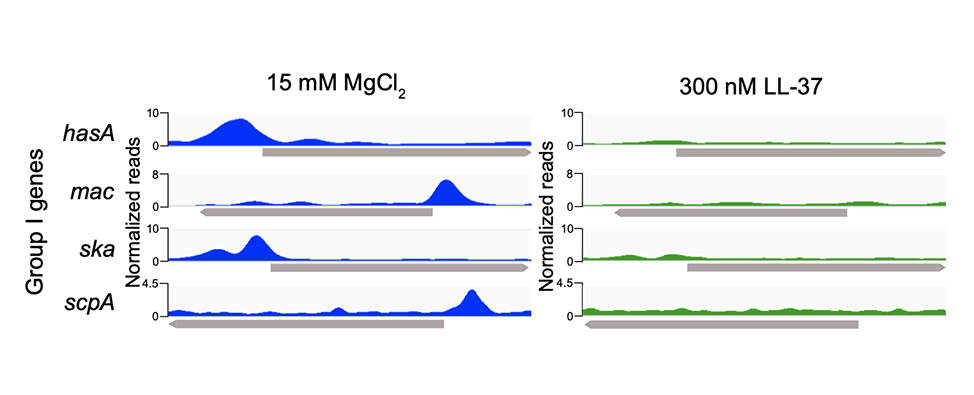The expression of these and other virulence determinants is regulated by the CsrRS (CovRS) two-component system in response to specific environmental signals including the human cathelicidin antimicrobial peptide LL-37. Paradoxically, LL-37 secreted as part of the host innate immune response signals through CsrRS to upregulate multiple GAS virulence factors, thereby promoting a transition from asymptomatic mucosal colonization to invasive infection. The lab is investigating how the CsrRS system activates expression of certain genes and represses others, and how additional regulatory proteins modulate CsrRS-mediated control of gene expression.

ChIP-seq: CsrR binding to promoters of regulated genes. During colonization, exposure of GAS to magnesium in body fluids stimulates phosphorylation of CsrR, which promotes CsrR binding to target promoters and repression of virulence gene expression. During a host immune response, the antimicrobial peptide LL-37 released from inflammatory cells inhibits CsrR phosphorylation, reduces CsrR binding, and derepresses virulence gene expression. doi: 10.1128/mBio.01642-21